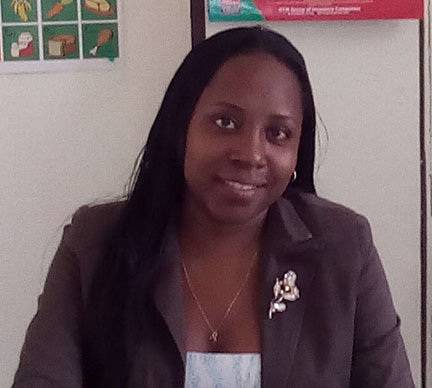Modest entrepreneurial initiatives arising out of a growing inclination towards self-employment has given rise to the need for appropriate business training for the investors. Limited investigation done by the Stabroek Business has revealed not only that persons with a belated passion for self-employment are venturing into business without the benefit of any formal business training but also that choices are moving in the direction of sectors that have been, for the most part, the purview of the state.
The resurgence of private education in Guyana is largely a function of, first, an increasing concern over what is widely regarded as the decline in the quality of public sector education as well as the search by teachers for opportunities to supplement their insubstantial incomes. The so-called bottom house extra lessons phenomenon that blossomed as teachers targeted candidates seeking better results mostly at the National Grade Six and CXC examinations, steadily metamorphosed into more established privately-run institutions. Not only did the bottom house arrangements become more organized and more in demand, but new, well-financed and well-structured institutions designed to cater for learners across the entire landscape of learning from pre-nursery to pre-university came into being.


What was deficient in some instances was the failure of the proprietors of some of these institutions, primarily professional teachers, to apply a culture of business to their new-found entrepreneurial pursuits.
Anika Abel is a graduate of the Cyril Potter College of Education who opted out of the mainstream to create her own learning institution, Nick’s Phonics Centre in January last year. Having worked at a city private school for 14 years, she had, over time, developed a personal passion for raising standards among children whose literacy skills were insufficient to meet the requirements of the conventional school system. Situated at 162/163 Lamaha Street, North Cummingsburg, Nicks Phonics Centre was created to cater for children between the ages of 3 years old to 8 years old. Abel says that the success of the centre revolves around its focus on partnering with the children’s teachers in order to ensure that their learning remains on track. It also ensures that the specific learning needs of each child are met and works to develop confidence, self-esteem and independent study skills.
Approaching two years into the creation of the centre, however, Abel has encountered challenges which, perhaps, she might not have anticipated. A walk through Nick’s Phonics Centre would persuade even the most scrupulous observer that considerable attention has been paid to creating the appropriate learning environment. That notwithstanding, the sustainability of the centre has come under threat from what Abel openly concedes has been an absence of balance between her competence as a teacher and a moulder of minds, on the one hand, and her limited business skills.
As the problems associated with ensuring the financial viability of the venture have grown and the number of students has shrunk, Abel finally turned to the local franchise of the internationally-known business coaching service provider to get help to improve her venture, specifically, further enhancing the quality of service that it provides and increasing her revenue.
It was, it seems, the challenge of balancing her preoccupation with providing a top class service with addressing the affordability limitations of the parents of children whom she felt most needed the service that she was offering that had become Abel’s problem. Her satisfaction with the help which the centre was affording its charges had, over a period of time, become tempered by the challenge of delinquent parents neglecting to meet set deadlines for the payment of fees and her own reluctance to turn their children away. Eventually, she concedes, the reality confronts you.
What her Action Coach encounter has been seeking to accomplish is a recognition that the Nick’s Phonics Centre, as an institution of learning, may have a social role but that it offers a service at a cost to the service provider. With the decline in patronage having meant that the number of students have more than halved, Abel has been compelled to make practical decisions that are more in keeping with running a business. Strategic staff changes have been made as has been the decision to relocate.
The rebuilding process, however, has done nothing to diminish her primary focus, that is, moulding minds and building intellectual capacity. Except that with the intervention of Action Coach it is dawning on her, increasingly, that the quality of the product that she offers cannot be separated from the cost of offering it.




